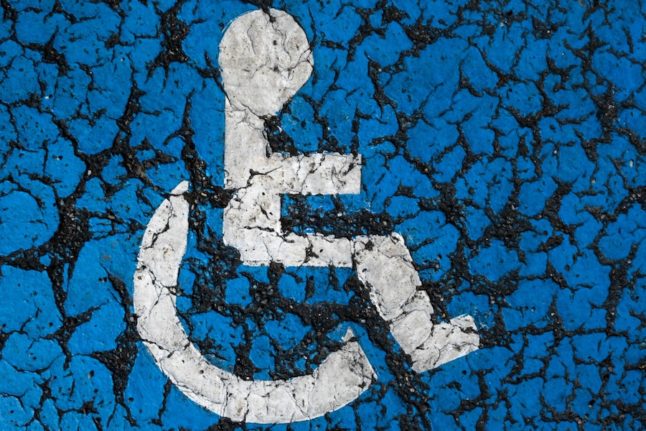Around 60 percent of households in France are owned by the people living in them. For the rest of us, that means renting.
As a foreigner in France the process of finding somewhere to rent can be bewildering – particularly if you don’t speak the language.
READ ALSO A beginner’s guide to renting property in France
We have put together a list of some of the key words you need to know to be able to find somewhere to live:
L’agent immobilier
Finding somewhere to rent often involves going through an agent immobilier – or real estate agent. He or she will help facilitate visites (viewings) of various biens immobiliers (properties).
The name for real estate agency is agence immobilier.
READ MORE The vital French terms you need to know when buying a house in France
Le bail
The French term for rental contract is le bail, sometimes referred to as a contrat de location.
Un bail nu is a rental contract for an unfurnished property, while un bail meublé is a rental contract for a furnished property.
Le bailleur is the owner of the property, who has signed a contract to rent it to someone else.
Le bien
When talking about real estate, the word bien is simply used to refer to the property itself, whether this is a maison (house), appartement (flat) or immeuble (building).
READ MORE Why are Paris landlords so difficult and what can you do about it?
La caution
This is the name given to a guarantor – the person or organisation who commits to pay in the place of the renter, if the renter defaults their payments. Another term for la caution is le garant.
La colocation
When it comes to renting, la colocation is a term used to describe a situation in which you split the rent with another resident of the property. If you live en colocation with someone, it means you live in a property with other people. A colocataire is a housemate, frequently shortened to coloc.
Les charges
Les charges are added costs charged on top of the property rental price itself.
In France, these often include monthly maintenance costs, rental taxes, cold water and sometimes even heating and wifi. When a rental price is advertised, it will either be listed as hors charges (HC – without charges) or avec charges comprises (CC or TCC – with charges included). You should check with the estate agent what charges you will be obliged to pay to the owner.
READ MORE: ‘Les charges’: Why owning and renting apartments in France is becoming more costly
Quelles charges sont inclues? – What charges are included?
Le délai des préavis
This is the timeframe within which you must inform the property owner before leaving the property and ending their contract. Le délai des préavis is defined in the rental contract that you sign. Generally you must inform the property owner with a tracked and signed-for postal letter.
READ MORE Renting furnished accommodation in France: What should your landlord provide?
Le dépôt de garantie
Often once you have signed a rental contract, you will be required to hand over a dépôt de garantie – a deposit often worth a couple of months of rent, which will be paid back to you at the end of your contract (unless you have damaged the property). Many landlords won’t accept to rent a property to someone who cannot provide a dépôt de garantie.
Le dossier de location
If you like the look of a rental property, you will often have to prepare a dossier de location – which is a collection of documents that the landlord will inspect before offering you the chance to sign a rental contract.
READ MORE: Everything you need to know about your vital French ‘dossier’
You will typically need to provide une photocopie de votre carte d’identité (a photocopy of your ID card); vos trois derniers bulletins de salaire (your last three payslips); un justificatif de domicile (proof of your current address); votre dernier avis d’imposition (your last tax return); un garant (a guarantor); votre carte de séjour (your French residence card – if needed); votre RIB (your French bank account details); and les quittances de loyer de votre dernière location (receipts of payment from the last rental property you stayed in).
L’état des lieux
This term refers to the inventory or inspection of a property that you will carry out with the owner or estate agent before moving in. You will also do faire un état des lieux when your rental contract comes to an end. Providing nothing is damaged, you will be able to recover your dépôt de garantie.
L’investissement locatif
When you buy a property with the goal of renting it out (buy-to-let), this is known as an investissement locatif.
La location
This is a term used to describe a rental property or the act of renting itself.
READ MORE How France is making renting property (a bit) easier
Le loyer
The amount of month you pay to rent a property is called le loyer.
READ MORE: Renting property in France: Should I go for furnished or unfurnished?
Les mètres carrés
When you browse through property ads, you’ll notice that surface areas in France are measured in mètres carrés (square metres). You may also see properties described as being T1, T2, T3 or more. The number roughly refers to the amount of rooms the property has, including bedrooms and sitting-rooms, but excluding the kitchen and bathrooms.
Une Pièce
This refers to a room, if you see a property advertised with 1 pièce it means it has one room, not one bedroom – ie it’s a studio.
La paperasse
This simply means paperwork. During the period in which you monter un dossier, there will be a lot of paperasse to go through.
Le revenu foncier
The income you earn from rental properties is known as le revenu foncier.
La sous-location
The term for subletting is sous-location – this is legal in France depending on the kind of property you are renting. Often you will need to inform the property owner in advance. You can check what the rules are depending on your situation here.



 Please whitelist us to continue reading.
Please whitelist us to continue reading.
Member comments